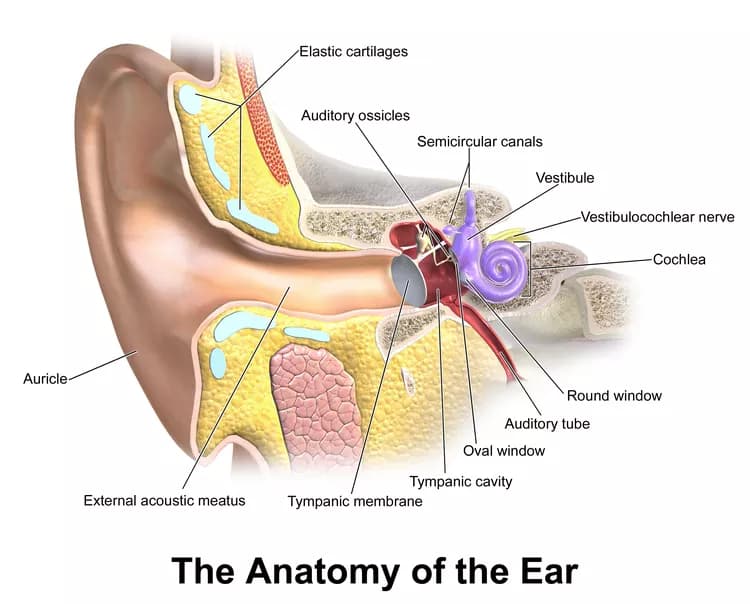
Toxic Secretions From Intracranial Tumor Damage The Inner Ear
A new study at Massachusetts Eye and Ear showed that in some cases of vestibular schwannoma, a sometimes-lethal tumor often associated with neurofibromatosis 2 (NF2), secretions from the tumor contain toxic molecules that damage the inner ear. The findings, published online in Scientific Reports, explain why some vestibular schwannomas cause hearing loss even though they are not large enough to compress nearby structures that control hearing.
"What's written in textbooks is that these tumors cause hearing loss by growing to the point of compressing the auditory nerve," said senior author Konstantina M. Stankovic, M.D., Ph.D., FACS, an otologic surgeon and researcher at Mass. Eye and Ear. "We knew that it couldn't be as simple as that, because there are large tumors that do not cause hearing loss and little ones that do."
The researchers also identified TNFa, a toxic compound that has been implicated in other forms of hearing loss, as a causative toxic molecule in the secretions from human vestibular schwannomas. When they applied those secretions directly to a mouse cochlea, they found that the degree of cellular damage correlated to the severity of hearing loss in humans.
Hearing loss is often the first sign of a vestibular schwannoma. Also termed "acoustic neuroma," vestibular schwannomas grow from the Schwann cells of the vestibular (balance) nerve in the inner ear and represent the fourth most common intracranial tumor. Though vestibular schwannoma is a hallmark of NF2, a genetic disorder causing tumors to grow throughout the nervous system, the tumors most commonly occur sporadically.
Although histologically non-malignant, vestibular schwannomas growing in size can damage nearby structures and can lead to death by compressing the brainstem. By compressing nerves in the internal auditory canal, the tumors can cause vestibular dysfunction, facial nerve paralysis and sensorineural hearing loss. Currently, patients with symptomatic or growing vestibular schwannomas can undergo surgical resection of radiotherapy; however, both of these procedures can result in serious complications.
The findings introduce a second way in which the tumors can cause sensorineural hearing loss, by secreting toxic molecules, including TNFa. The authors are hopeful that new therapies may be developed, because there are known ways to inhibit the body's production of TNFa.
"Because these are histologically non-malignant tumors, they do not need to be removed or irradiated as long as they are not growing. However, hearing can continue to decline even in patients with non-growing tumors," Dr. Stankovic said. "Our findings suggest that there may be a pharmacologic way to maintain hearing in some patients with vestibular schwannoma."
The above post is reprinted from materials provided by Massachusetts Eye and Ear. Note: Materials may be edited for content and length.
Disclaimer: DoveMed is not responsible for the adapted accuracy of news releases posted to DoveMed by contributing universities and institutions.
Primary Resource:
Dilwali, S., Landegger, L. D., Soares, V. Y., Deschler, D. G., & Stankovic, K. M. (2015). Secreted Factors from Human Vestibular Schwannomas Can Cause Cochlear Damage. Scientific reports, 5.
Related Articles
Test Your Knowledge
Asked by users
Related Centers
Related Specialties
Related Physicians
Related Procedures
Related Resources
Join DoveHubs
and connect with fellow professionals

0 Comments
Please log in to post a comment.